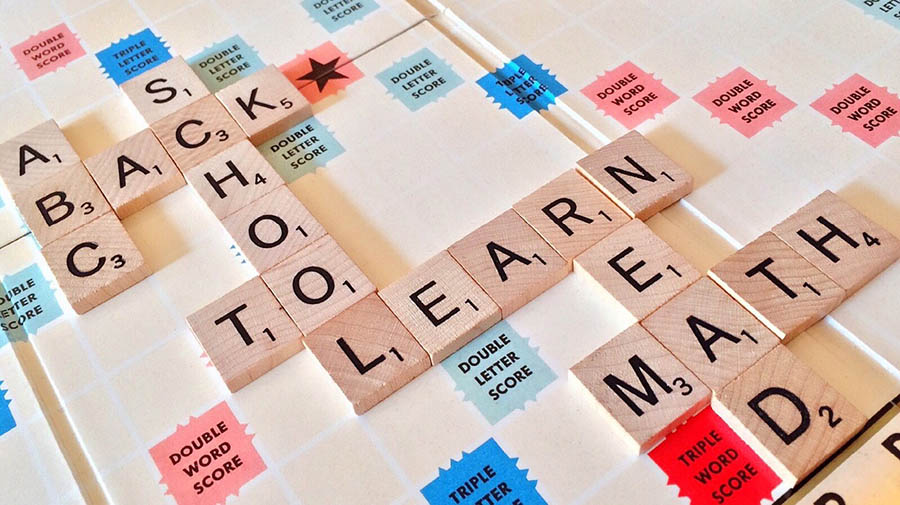For anyone not familiar with it, Scrabble is a crossword-style game in which two or four players put tiles, each bearing a number, onto a scoreboard with 15 by 15 square grids. In the gameplay, each of the four players gets a rack of seven letter tiles that are used to form letters, either vertically or horizontally.
The tiles must form words as we see in crossword fashion, and that can be read left to right, in rows or downwards using columns. And most importantly, the word must appear in the standard dictionary or lexicon.
It is quite a simple game and fun, too, if you master a few tricks and strategies involved. Every letter is assigned a specific value and distribution, which means that you have to maximize every opportunity and resource you have at your disposal, from letters to word bonuses. That said, let’s look at some of the tips and strategies to help you dominate the scrabble game.
Use a Scrabble Dictionary
The standard English dictionary can help you beef up your vocabulary, but if you want to be a pro at scrabble, you can make use of a specialized Scrabble dictionary. This dictionary lists all the possible words for every category of length from two letters onwards. And to win Scrabble, you have to come up with as many words as you possibly can from a set of scrambled letters. To achieve this, you could also use free online word unscrambler tools that are designed to immediately and effortlessly uncover all possible words that can be formed from a set of scrambled letters. This way, you could have the edge over your opponent(s).

Learn to Manage Your Rack Set
This can be as simple as shuffling your tiles to try out if you can find some playable words, partial words, prefixes, suffixes, and other word combinations. Moreover, you can have an edge if you ensure that your remaining tiles do not constitute an imbalance of vowels and consonants or any identical tiles that could inhibit making high-scoring gameplay.
To do so, make sure that:
- You exchange some letters if you end up with more vowels. And at any given time, ensure you do not have more than three vowels on your rack.
- The most valuable letters to hang on to are R, E, T, A, I, N, S.
Additionally, you could make use of a hook, which is a letter that you can add to an existing word to come up with a completely different word. For instance, you can add a letter G to ‘host’ to transition that word to ‘ghost.’
Take note of high-scoring words in scrabble by memorizing letters J, Q, Z, and X.
If you want to dominate a game of scrabble, you should memorize high-scoring words to have the edge over your opponent. Some common words that could help you score well every time you play are ZOA, ZEE, QAT, OXO, etc. Furthermore, high-scoring two-letter words such as Qi, Za, and Jo are easier to remember as they are too short and can be awesome at boosting your scores.
Do Not Squander Your High-value Tiles Early
High-value tiles are referred to as money tiles. If you manage them properly, then you will most definitely be rewarded. The way to do that is to avoid using these tiles on low-yielding words. Instead, keep calm and wait for an opportune moment and use them to rack up more points.
The letter “S” and some of the blank tiles may seem to be of less value points-wise, but note that they can be invaluable as the game progresses. There are only four tiles for a letter in a game of Scrabble, and the ability to make words plural is quite a catch. Therefore, it is recommended that you hang on to your S for as long as you possibly can to have a chance of raising your scores by at least 8 points. Besides, you could get a bingo of 50 bonus points if you utilize all your seven letters in one word.

Use Different Forms of Words
Once you have created some words on the board, you can maximize your scores using the words in different forms. This can be a game-saver, especially if you are stuck with bad tiles and you have no feasible openings left. For example, you can add “D” to “SLOPE” to come up with “SLOPED.” This strategy can help you dispose of unwanted tiles without necessarily ceding turns.
Extend words using prefixes or suffixes
In Scrabble, you can use compound words to boost your scores. For example, if your opponent plays a word, say, WAVES, and you have already played a word, say AIR, then you can combine the two and come up with AIRWAVES as a compound word. This increases your score and boosts your winning edge.
Additionally, you can modify words from existing ones by adding short prefixes such as ‘anti” at the start of a word or ‘ing’ at the end. Another valuable trick would be to dispose of letters such as Q, K, X, and Z early in the game to gain points and avoid any penalties if you end up losing.
Block off Your Opponent’s Premium Tiles
Serious scrabble players are always eyeing what their opponents might do next. To be proficient at that, try looking ahead as to what your opponent might do if you play a particular word, and as well look to block premium tiles that might put your opponent on a winning edge when they make their next turn.
Understand Your Opponent’s Playing Style
Players strategize and play differently. But at the earliest opportunity, most players would want to blow you out of the game by playing long or high-scoring words. Therefore, take note of that and try to block them from burning the scores from the onset.
Play Safe to Maintain Your Lead
If you end up taking the lead, you can boost your chance of winning the game if you play certain words. on the other hand, if you end up trailing your opponent, then try to play words that can open up the game and spring you back to it.
The bottom line
In a game of scrabble, reading the dictionary inside out is not a guarantee of winning. Instead, skill, vocabulary, coupled with strategy will put you on edge over your opponent. And whether you play while leading or trailing, remember to think at least two steps ahead before you play your turn.


Tina Smith
Mar 9, 2021 -
Thanks for the wonderful post.